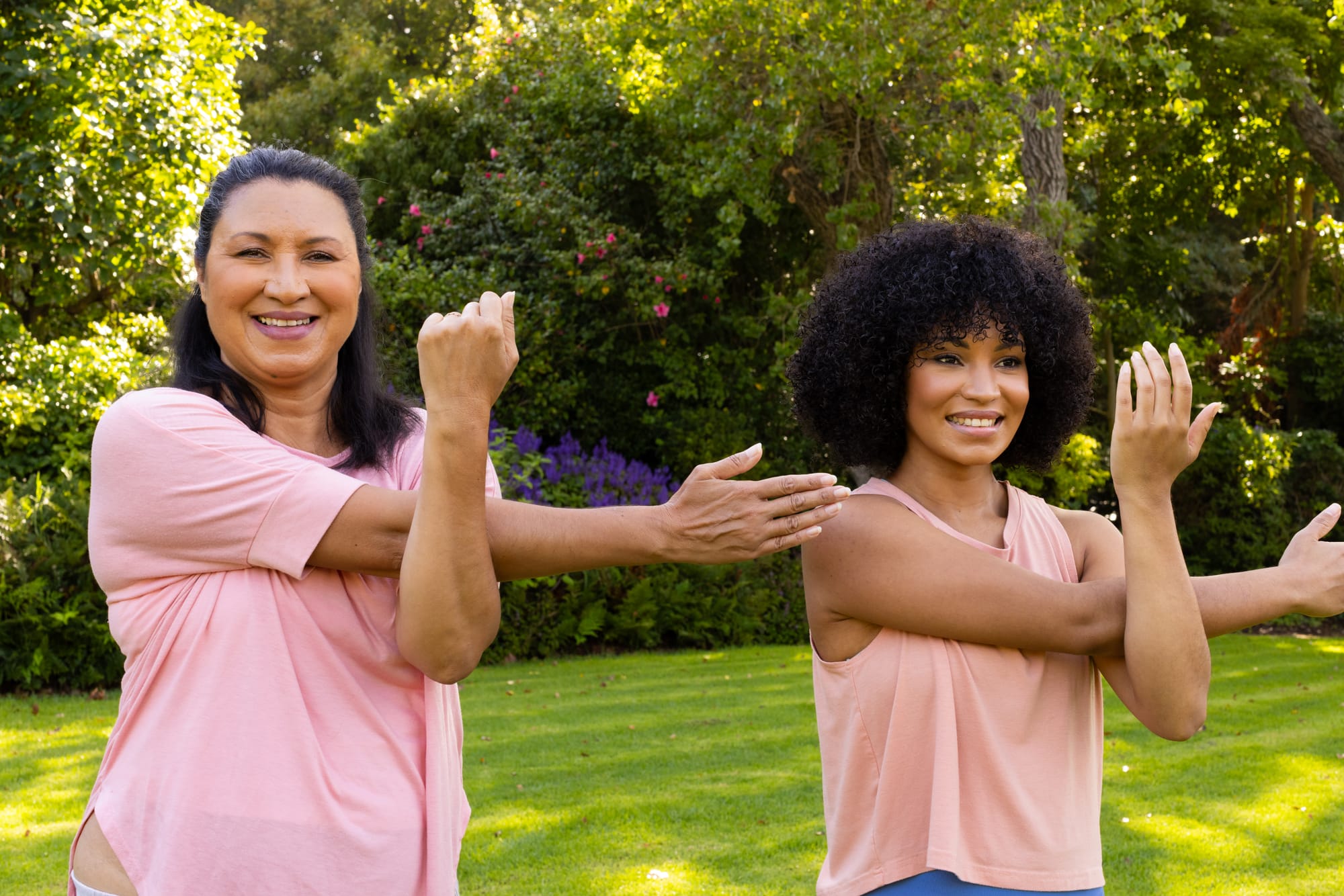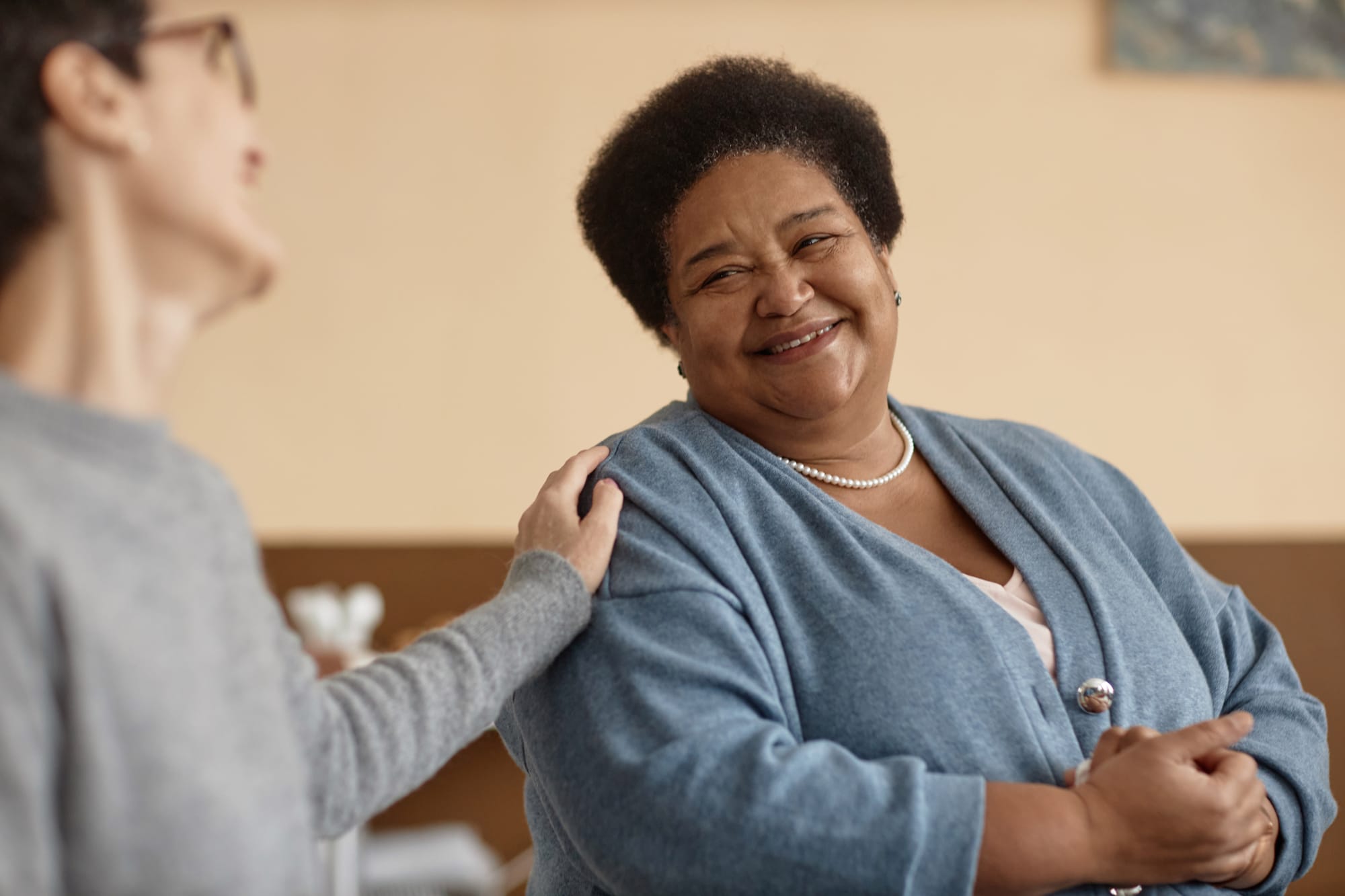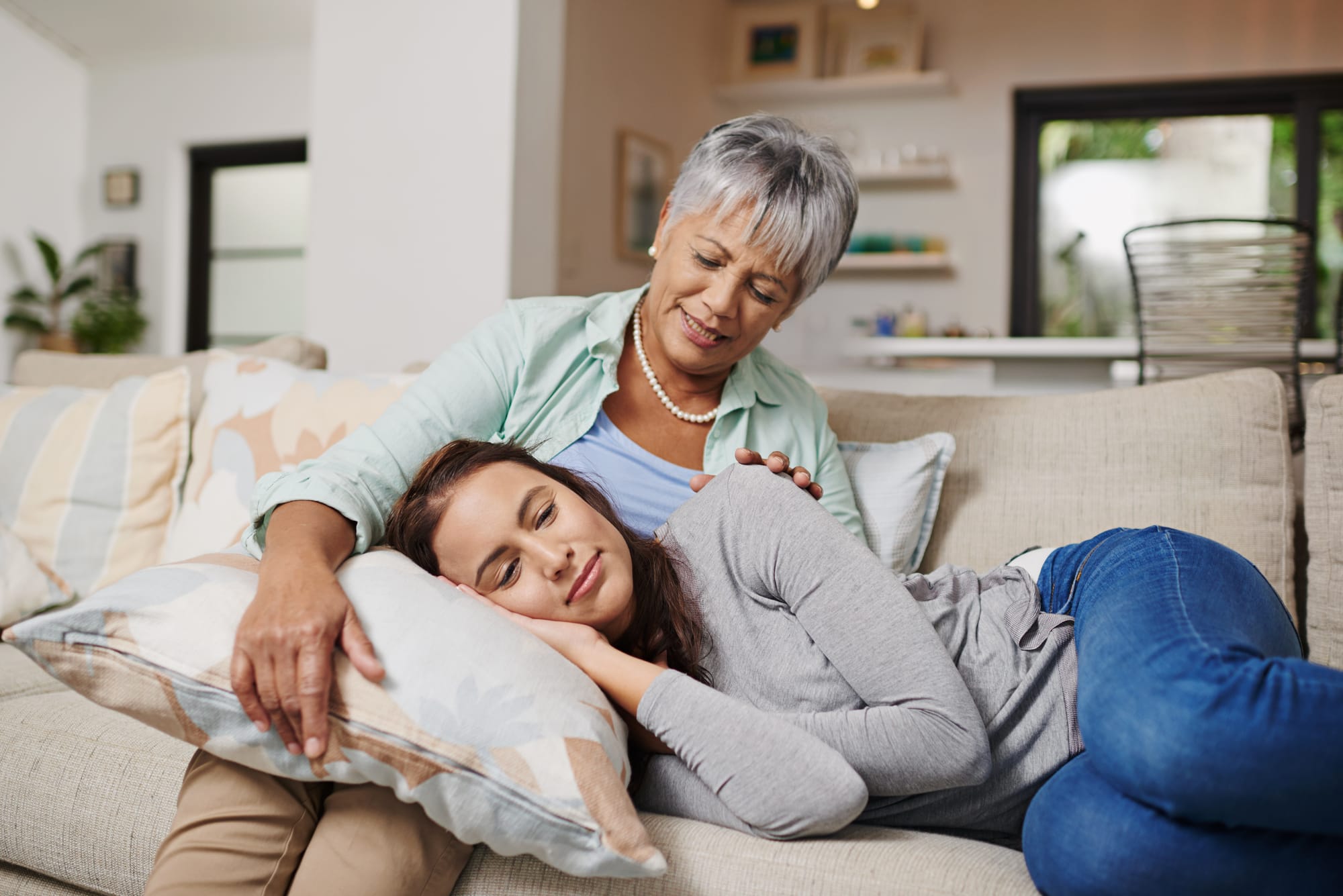From Challenges to Comfort: Palliative Care for Dementia Patients
Practical ways palliative care makes life more comfortable for dementia patients, addressing their physical and emotional needs with care.
For caregivers, balance means more than managing a routine—it’s about prioritizing well-being alongside the needs of others. By making thoughtful choices each day, caregivers can find harmony, avoid burnout, and approach each challenge with energy and empathy.

Defining a balanced lifestyle requires taking a long look inside yourself and making sure you care for yourself as much as you do for others. It means more than simply adhering to a routine; it is about understanding how our choices affect our overall well-being. Through thoughtful choices in nutrition, movement, mental care, and sleep, caregivers can create a lifestyle that supports their well-being while allowing them to care for others.
For caregivers, a balanced lifestyle goes beyond daily to-dos and cares; it’s an ongoing commitment to managing personal health, emotional needs, and caregiving duties. Imagine balance as an artfully composed painting—each part of our day contributes to the whole. This means intentionally creating space for self-care alongside caregiving duties, ensuring that work, family, rest, and moments of joy each have their place.
Striving for balance doesn’t mean everything will be perfectly equal every day. But by setting thoughtful priorities and living with intention, caregivers can avoid the exhaustion and emotional strain that come from overextending in one area while neglecting another. Allocating time to various aspects of life keeps energy levels up and provides a more sustainable caregiving experience.
For caregivers, balance isn’t just about personal wellness; it’s also about the quality of care we provide to others. When caregivers look after themselves, they can approach their duties with more patience, resilience, and emotional stability. Those who balance personal needs with caregiving often experience lower stress levels, improved immune health, and deeper connections with loved ones. And a well-balanced caregiver is more likely to be present and emotionally supportive, strengthening bonds and building a nurturing environment.
In turn, caregivers who make time for their own physical and mental health can reduce the likelihood of burnout, allowing them to provide better support for others over the long term. Balance enables caregivers to bring energy and empathy to their role, benefiting both themselves and those in their care.

Good nutrition provides the energy to tackle both caregiving duties and personal needs. Think of the body as a finely tuned machine that needs the right fuel to keep running smoothly. A balanced diet does more than support physical energy—it has powerful effects on mood and mental well-being as well. When caregivers nourish themselves with whole grains, lean proteins, and vibrant fruits and vegetables, they’re investing in their ability to be present and resilient.
Certain nutrients are particularly beneficial in managing the demands of caregiving. Antioxidants found in berries and leafy greens help reduce inflammation and stress, while omega-3 fatty acids, available in fish and flaxseeds, support brain health and emotional stability. Magnesium, found in nuts and seeds, is known for its calming properties, helping to ease tension and promote relaxation. It should be noted that over half of US population is seriously deficient in magnesium, making this choice a quick win.
A diet rich in these nutrients can help caregivers maintain energy and calm under pressure, creating a foundation of well-being from the inside out.
Planning meals ahead can significantly reduce the stress of deciding what to eat each day. A simple weekly plan allows caregivers to enjoy nourishing meals without the last-minute scramble for ingredients. Meal prep also creates an opportunity to involve family members, making meal times more enjoyable and less of a chore. Preparing meals with loved ones offers caregivers a sense of community and connection—a moment to pause, share, and nourish both body and spirit.

Exercise can feel like a luxury in a caregiver’s busy day, yet it serves as an anchor, helping to build resilience and boost mood. Finding enjoyable forms of movement—whether it’s a brisk walk, yoga, or dancing—can make a world of difference. Each type of activity not only supports physical health but also acts as a mental refresh, providing clarity and reducing stress.
The key to making movement sustainable is to find activities that feel right for you. Caregivers may enjoy the social energy of a group class or prefer the solitude of a peaceful walk. Different forms of exercise offer varied benefits, so the goal is to find something that feels satisfying and accessible.
Even short bursts of activity—a quick walk, some gentle stretching, or a few minutes of deep breathing—can re-energize the body and mind, making a busy caregiving day feel more manageable.
When physical activity becomes part of a routine, caregivers often notice improvements in mood, better sleep, and reduced stress. Movement stimulates the release of endorphins, natural mood lifters that combat feelings of fatigue and anxiety. By incorporating small pockets of exercise, caregivers can make an investment in both physical and emotional resilience.

The demands of caregiving make it easy to overlook our mental well-being, yet caring for the mind is as essential as caring for the body. Making time for stress management, relaxation, and meaningful connections supports a sense of emotional balance. Mindfulness practices, moments of reflection, or a call to a friend are powerful ways to decompress and reconnect with yourself.
Managing stress is particularly important for caregivers, whose roles can feel overwhelming at times. Techniques like deep breathing, meditation, and mindfulness can be lifelines, creating calm and focus in the middle of a hectic day. Taking a few quiet minutes to center oneself can reduce the emotional toll of caregiving, helping caregivers respond to challenges with greater patience and empathy.
Reaching out to friends or a support group also provides perspective, reminding caregivers they’re not alone. Sharing experiences, even brief conversations, strengthens social support, which is essential for mental resilience.
Mental balance involves finding time for both stimulation and rest. Caregivers can stay sharp by engaging in enjoyable activities—reading a book, trying a new hobby, or even enjoying a puzzle. These small acts of mental stimulation foster a sense of accomplishment and refresh the mind. Similarly, taking time to unwind through simple, quiet activities provides necessary rest, helping caregivers approach their duties with renewed focus.

In the busy life of a caregiver, sleep can easily fall by the wayside, yet it is essential to both physical and mental resilience. Adequate sleep restores the body, improves mood, and boosts the immune system, helping caregivers stay strong and capable in the face of daily challenges.
Establishing a peaceful bedtime routine can make a significant difference in sleep quality. Small adjustments, like dimming lights, practicing gentle stretches, or reading something calming, create a transition into sleep. A quiet, uncluttered sleep environment can help turn rest into a truly restorative practice, giving caregivers the energy to approach each day with clarity and purpose.
Maintaining balanced lifestyle is an art form that requires conscious dedication and ongoing exploration. Through thoughtful choices in nutrition, physical activity, mental well-being, and sleep, we can craft a life imbued with meaning, health, and balance. Embrace each day with intention, for the beauty of existence lies in the balance we create in our daily cares.